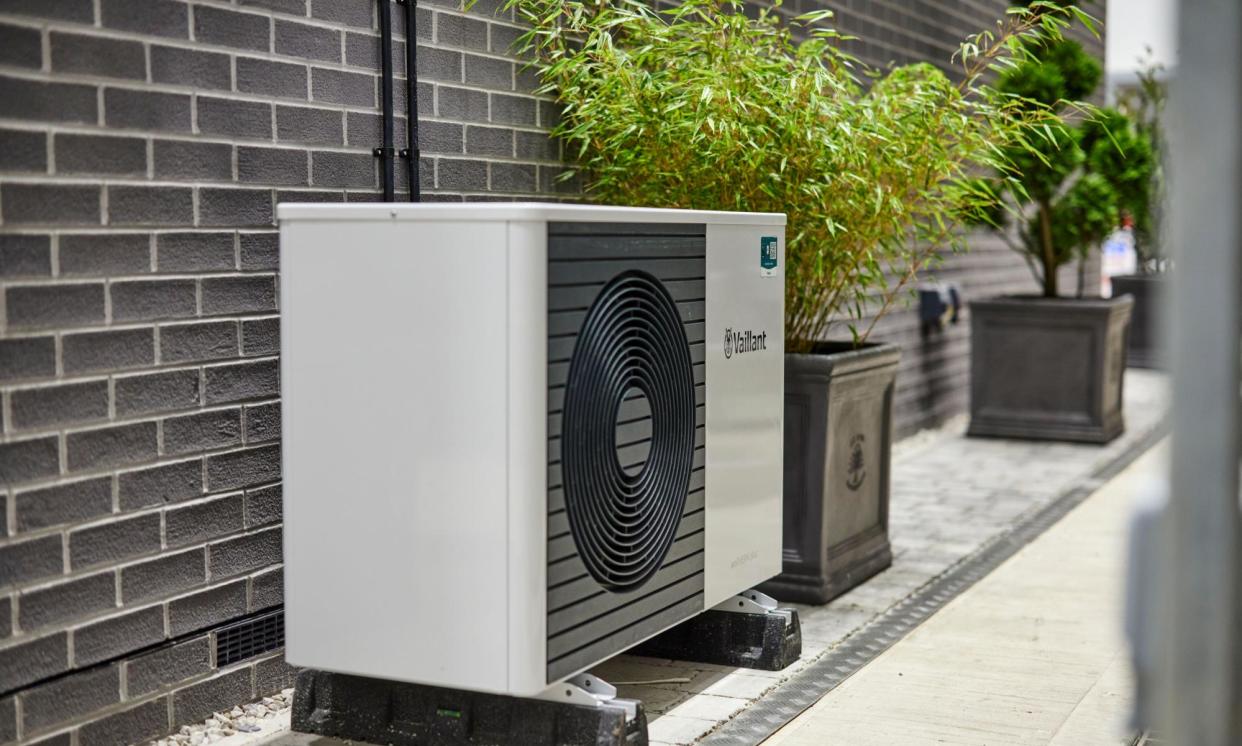UK’s drive to install heat pumps stymied by ‘lack of demand and skill shortage’

The UK’s drive to replace gas boilers with heat pumps is being stymied by a lack of consumer demand and a shortage of skilled installers to fit heat pumps where they are wanted, according to an industry survey.
The most comprehensive poll of heat pump installers to date found that the biggest barrier was the low number of households choosing to get one fitted.
More than 40% of respondents to the survey by the innovation charity Nesta said a lack of demand was preventing the UK from reaching its heat pump targets. Meanwhile, almost a third (30%) of respondents said finding skilled staff to carry out the work was a barrier.
The findings, which draw on responses from 345 heat pump installers, are likely to raise concern over the UK’s efforts to cut carbon emissions by helping households to replace their gas boilers with electric heat pumps.
A recent report by the National Audit Office said the rate of heat pump installations was too slow and would need to accelerate 11-fold if the government was to reach its target of 600,000 heat pumps being installed in homes every year by 2028. The report said 55,000 heat pumps were sold in the UK in 2022, based on Heat Pump Association data.
The Labour party has pledged to pick up the pace if it wins power and in a weekend interview Ed Miliband, the shadow secretary of state for energy security and net zero, complained that the UK’s “heat pump take-up is absolutely miserable in comparison to other countries”.
He reiterated Labour’s manifesto pledge that “nobody will be forced to rip out their boiler as a result of our plans”, telling the Sunday Telegraph: “We’ve got to show that heat pumps are affordable and are going to work for people.”
Even if consumers eventually come around to the idea, hitting the heat pump target will also require a huge influx of workers. The industry will require about 37,000 installers by 2030, compared with about 3,000 today, meaning between 4,000 and 6,000 new installers will need to be trained up every year, says Nesta.
“It’s clear that staff recruitment continues to be an issue for an industry that needs to expand to meet future demand,” said Oliver Zanetti, a manager at Nesta. “To recruit the next generation of installers, colleges and industry must work together to improve apprenticeship courses.”

 Yahoo News
Yahoo News 
